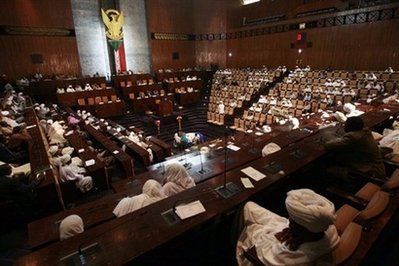Delay of freedoms reform prompts dismay of Sudan’s dialogue members
December 26, 2017 (KHARTOUM) – Some members of the High Committee for the Implementation of the National Dialogue Recommendations (HCINDR) expressed their displeasure at the delay in the formation of 13 committees, the reform of laws restricting freedoms.

Ahmed al-Balal, the information minister but also a spokesperson of the dialogue committee Tuesday explained the delay saying the HCINDR is preparing a comprehensive vision of the 13 committees and the implementation of the remaining recommendations. He added that a meeting would be convened within days to discuss these issues.
However, a member of the implementation committee Member Taj al-Din Banga and a leading figure of the Popular Congress Party said that they have not yet received any call for the HCINDR meeting to enforce the outputs of the dialogue.
Further, Banqa told Sudan Tribune that his party has a reservation over the slowdown in the implementation of the dialogue recommendations.
“Our reservation is that the dialogue ended on 10 October 2016, which is a year ago, and so far there have been no commissions,” he said on Tuesday.
“We hope that the meeting will be as soon as possible,” he further said.
In April 2017, a ruling party-controlled parliamentary committee tasked with some constitutional reforms including the creation of the prime minister position refused to pass an amendment restricting the repressive power of the National Intelligence and Security Services (NISS).
The committee said the articles proposed by the PCP include details and figures that should be put in the law, not the constitution.
Banaga stressed the need to prioritize the restoration of freedoms, establishing 13 commissions and to reshape some existing commissions such as the electoral, human rights and the office of the political parties registrar.
He pointed to the upcoming general elections in 2020 saying that the laws restricting freedoms had not been amended to create a suitable atmosphere.
He added that the commissions of corruption, constitutional reform, judicial reform, media, identity, civil service, land and the Public Service Selection Commission have not yet be formed.
Banaga said the PCP called during the dialogue process to include the commissions in the constitutions but the ruling National Congress Party preferred to announce it in a law, citing a large number of constitutional amendments.
(ST)
